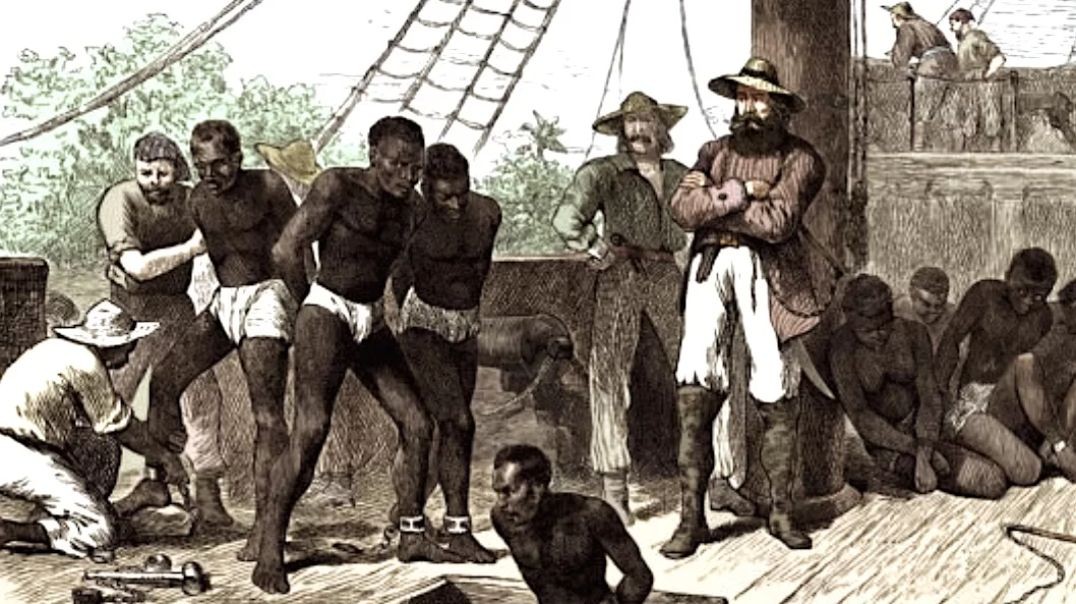Emperor Yohannes I of Ethiopia: Legacy, Rule, and Impact
Table of Contents
-
Introduction
-
Early Life of Emperor Yohannes I
-
Ascension to the Throne
-
The Political Landscape of Ethiopia in the 17th Century
-
The Religious Dynamics Under Emperor Yohannes I
-
Consolidation of Power and Military Campaigns
-
Governance Style and Administrative Reforms
-
Relations with Foreign Powers
-
Challenges and Threats to the Empire
-
Legacy of Emperor Yohannes I
-
Conclusion
1. Introduction
Emperor Yohannes I, also known as Yohannes I the Just, played a significant role in Ethiopia's history during the 17th century. Ruling from 1667 to 1682, Yohannes I sought to stabilize the Ethiopian Empire after a tumultuous period characterized by internal conflict and external threats. His reign was defined by his strong sense of justice, devotion to the Ethiopian Orthodox Church, and efforts to consolidate his power amid the shifting dynamics of the Horn of Africa. This article delves into the life, achievements, challenges, and lasting impact of Emperor Yohannes I.
2. Early Life of Emperor Yohannes I
Yohannes I was born as Adyam Sagad, a name that reflected the traditional cultural customs of his time. He was a descendant of the Solomonic dynasty, a lineage that claimed descent from King Solomon of Israel and the Queen of Sheba, a fact that was deeply embedded in Ethiopian royal traditions. Yohannes I's early years were marked by education in the Ethiopian Orthodox Church, where he was taught religious texts, governance, and military tactics. The young prince learned the value of strong leadership and religious unity from an early age, elements that would play a significant role in his rule.
Yohannes I's upbringing in the court was significantly influenced by his father, Emperor Fasilides, who had successfully restored stability to Ethiopia after the crisis of the Jesuit missionaries in the previous decades. Fasilides' reign provided Yohannes with a firsthand experience of how to navigate complex political situations, including maintaining the delicate balance between regional rulers (the Ras) and the influence of the Ethiopian Orthodox Church.
3. Ascension to the Throne
Emperor Yohannes I ascended to the throne in 1667 following the death of his father, Emperor Fasilides. The transition of power was relatively smooth compared to many other successions in Ethiopian history, which were often marked by palace intrigue and competition among noble families. Yohannes I took the throne at a time when Ethiopia was recovering from religious and political conflicts that had plagued the country during the reign of his predecessors.
Upon his ascension, Yohannes I adopted the throne name “Adyam Sagad,” meaning “He Whom the Confines of the Earth Worship.” His coronation was conducted with elaborate ceremonies that highlighted Ethiopia's deep connection to the Solomonic lineage, emphasizing divine legitimacy. His early moves as emperor involved securing loyalty from powerful nobles and confirming the autonomy of the Ethiopian Orthodox Church, which had become an essential pillar of the monarchy's authority.
4. The Political Landscape of Ethiopia in the 17th Century
During Yohannes I’s reign, Ethiopia was a collection of diverse regions, each with its own distinct culture, language, and leaders. The empire's political structure was a complex network of regional lords, known as Ras, who wielded considerable power in their territories. Yohannes I had to navigate this fragmented political landscape to maintain unity.
The Ethiopian Empire faced threats not only from within but also from neighboring kingdoms. The Oromo people, who had expanded into many regions of the empire during the 16th century, were a significant factor in the political dynamics of Yohannes I's time. Their influence required Yohannes to constantly keep his military prepared for campaigns to secure the empire’s borders.
Another challenge Yohannes I faced was the remnants of influence from European powers, particularly the Portuguese, who had intervened in Ethiopian affairs in previous decades. Although his father Fasilides had expelled Jesuit missionaries to eliminate their influence, Yohannes had to ensure that the autonomy of the Ethiopian Orthodox Church was maintained and that no foreign religious interference re-emerged.
5. The Religious Dynamics Under Emperor Yohannes I
Religion was a central element of Yohannes I's reign. He was a devout adherent of the Ethiopian Orthodox Church, and his rule was characterized by a strong commitment to religious orthodoxy. The Ethiopian Empire had, for centuries, prided itself on its Christian heritage, which differentiated it from surrounding Muslim-majority regions.
Yohannes I was dedicated to strengthening the Ethiopian Orthodox Church and worked to eliminate any forms of heresy or religious dissent. He held several councils to address theological issues and ensure doctrinal unity. One such council took place in Gondar, where prominent clergy gathered to discuss church practices and how to maintain purity in religious observance. Yohannes I’s approach to religious governance was not merely spiritual; it was also political, as he used religion to unify the diverse regions of his empire and solidify his legitimacy as a ruler.
The emperor also took steps to restrict the influence of Islam within his borders, although he did so with a measured approach. While neighboring Muslim kingdoms and traders were influential in the region, Yohannes I maintained diplomatic relations with them to ensure peaceful trade and coexistence, while reinforcing the Christian identity of his own empire.
6. Consolidation of Power and Military Campaigns
Consolidating power in an empire as vast and diverse as Ethiopia required both strategic alliances and military strength. Yohannes I undertook several military campaigns to assert control over rebellious regions and to defend against incursions from neighboring groups, such as the Oromo.
One of the key aspects of Yohannes I's military strategy was the use of regional lords to maintain order. He delegated authority to trusted nobles, which allowed him to exert influence across distant provinces without having to directly administer every region. However, this delegation required a careful balance—while it helped maintain stability, it also meant that Yohannes had to ensure these nobles remained loyal to the crown.
Yohannes I's military campaigns were largely defensive in nature. He aimed to secure the borders of his empire and protect against external threats. His campaigns against the Oromo were notable for their intensity, as the Oromo expansion had threatened many parts of the Ethiopian highlands. By pushing back against these incursions, Yohannes sought to secure the agricultural heartland of his empire, which was crucial for the economic stability of Ethiopia.
7. Governance Style and Administrative Reforms
Yohannes I was known for his just and measured approach to governance. He placed great emphasis on the rule of law and sought to create a sense of fairness and order within his empire. This earned him the epithet “Yohannes the Just.” He worked closely with the clergy and local leaders to administer justice, often holding open courts where grievances could be aired and resolved.
Administrative reforms under Yohannes I included efforts to streamline tax collection and reduce corruption among local officials. He aimed to ensure that the revenues of the empire were used effectively, particularly in supporting the military and funding the church. By keeping a close watch on the activities of tax collectors and regional governors, Yohannes was able to reduce the burden of excessive taxation on the peasantry, which helped to maintain social stability.
The emperor also focused on strengthening the central bureaucracy. He established a council of advisors composed of nobles, clergy, and military leaders, which helped him make informed decisions on matters of state. This council played a critical role in maintaining communication between the central government and the various regions of the empire, ensuring that Yohannes’ policies were implemented effectively.
8. Relations with Foreign Powers
Yohannes I's foreign policy was characterized by a cautious approach to external relations. The memory of Portuguese intervention in Ethiopian affairs during the reign of his predecessors made Yohannes wary of European powers. He maintained a policy of limited engagement with foreigners, focusing instead on strengthening Ethiopia’s internal structures.
However, Yohannes I did maintain diplomatic relations with neighboring Muslim states and other regional powers. Trade was an important aspect of these relations, as Ethiopia was part of several key trade routes that connected the interior of Africa with the Red Sea and the Indian Ocean. Yohannes ensured that Ethiopian merchants could trade safely, and he worked to foster good relations with Muslim traders, recognizing the economic benefits of such exchanges.
Yohannes I was also aware of the growing influence of the Ottoman Empire along the Red Sea coast. He took measures to ensure that the Ottomans did not encroach upon Ethiopian territory, while also avoiding direct confrontation. By balancing diplomacy with military preparedness, Yohannes managed to keep Ethiopia relatively free from external domination during his reign.
9. Challenges and Threats to the Empire
Emperor Yohannes I faced numerous challenges during his reign, both internal and external. Internally, the decentralized nature of the Ethiopian Empire meant that regional lords often had considerable autonomy, which could lead to conflicts of interest and challenges to the emperor's authority. Yohannes had to constantly work to keep these nobles in check, using both diplomacy and military force when necessary.
The expansion of the Oromo presented a significant external threat. The Oromo had been migrating into the Ethiopian highlands for over a century, and their presence posed a challenge to Yohannes’ efforts to maintain control over key regions of the empire. Yohannes conducted several campaigns against the Oromo, aiming to secure the borders of his empire and protect its agricultural base.
Another challenge was the potential for religious division within Ethiopia. The Ethiopian Orthodox Church was a unifying force, but there were also Muslim communities and various Christian sects within the empire. Yohannes had to navigate these religious dynamics carefully to prevent division and maintain unity. His efforts to enforce religious orthodoxy, while effective in some respects, also created tensions that required careful management.
10. Legacy of Emperor Yohannes I
Emperor Yohannes I left a significant legacy that shaped the course of Ethiopian history. His reign was marked by stability and a strong emphasis on justice and religious orthodoxy. Yohannes’ efforts to consolidate power and maintain unity in a diverse and often fractious empire set the stage for future emperors to build upon.
Yohannes I is remembered for his commitment to the Ethiopian Orthodox Church and his efforts to protect the Christian identity of Ethiopia. His support for the church helped to strengthen its role as a central institution in Ethiopian society, and his efforts to eliminate heresy ensured that the church remained a unifying force within the empire.
His administrative reforms and emphasis on justice earned him a reputation as a fair and just ruler. By reducing corruption and ensuring that the empire’s resources were used effectively, Yohannes helped to create a more stable and prosperous society. His focus on maintaining a strong military and securing Ethiopia’s borders also contributed to the long-term stability of the empire.
Yohannes I’s reign is often seen as a period of consolidation and stabilization, which laid the groundwork for the future growth and expansion of the Ethiopian Empire. His legacy as a devout, just, and capable ruler has endured in Ethiopian history, and he is remembered as one of the key figures who helped to preserve the Solomonic dynasty and the Christian heritage of Ethiopia.
11. Conclusion
Emperor Yohannes I of Ethiopia was a ruler who faced numerous challenges but managed to leave a lasting impact on his country. His reign was characterized by a strong commitment to justice, religious orthodoxy, and the consolidation of power in a diverse and complex empire. Yohannes’ efforts to maintain unity, strengthen the Ethiopian Orthodox Church, and protect the borders of his empire helped to ensure the stability of Ethiopia during a critical period in its history.
Yohannes I’s legacy as a just and devout ruler continues to be remembered in Ethiopia today. His emphasis on justice and religious unity, as well as his efforts to maintain the independence of Ethiopia from foreign influence, have made him a significant figure in the country’s history. Through his leadership, Yohannes I helped to shape the course of Ethiopian history and ensure the continuity of the Solomonic dynasty for future generations.








